- Learning time
- 10 minutes
- First play time
- 30 minutes
Troika
Designed by: Jun Sasaki
In Troika you are astronauts landed on a planet, discovering that three stones make a gem or fuel, depending on how you combine them. Gems are what score you points, but without fuel you’ll be stranded on the planet and all your gems are worthless!
The game is set up by turning all of the ‘stones’ face-down on the table: this is the extraction zone. The stones are actually numbered tiles: the face-up side shows a number between 1-15, and there are three tiles of every number apart from the 7 – there are seven ‘7’s! Everybody takes one tile face-down in front of them, and a single tile is flipped over in the middle before play begins.
On your turn you flip one tile face-up in the extraction zone, and then you have three options. You can move a face-up tile in front of you, move a face-down tile in front of you, keeping it hidden from your opponents (beware: you can have a maximum of three hidden tiles!) or return a face-up or face-down tile to the extraction zone. Your goal? Well, you must have three tiles of the same number: this is your fuel to escape the planet. Beyond that, you’re trying to collect runs of three tiles (7-8-9 and so on) as these will be considered gems in scoring. Important to remember though is the fact that each gem is worth the right-most digit of its highest number: thus, 1-2-3 is worth three, 7-8-9 is worth 9, but 8-9-10 is a terrible set as it’s worth zero. Any tiles that don’t fit into a set will be considered trash and cost your score -1.
Play continues until there are no face-down tiles left to flip over – OR! …When all but one players have called Troika. If you have at least five face-up tiles and no trash tiles, you can call Troika to remove yourself from the round and become – temporarily – a spectator. The first person to do so adds five to their score for the round, which can be a huge swing in your favour. When the round ends anybody without fuel is stranded and gets -1pt. The player with the highest gem value gets 2points; second-highest a single point, anyone else: nothing! After three rounds, the game ends.
The guru's verdict
-
Take That!
Take That!
It's certainly possible to see what others are collecting and make a spoiling move - the catch being, of course, that any tile you take needs to be good for you as well.
-
Fidget Factor!
Fidget Factor!
Very low - when it's not your turn you're invested in what tiles are being flipped and taken.
-
Brain Burn!
Brain Burn!
The set-collecting sounds very simple - and it is, in a way - but the combination of hidden information (everyone usually has at least one hidden tile, usually more) and luck-pushing (if you don't like the face-up tiles, taking a face-down one is a gamble) means Troika demands some tactical play.
-
Again Again!
Again Again!
You can't predict where the tiles will be, so if you like Troika's blend of luck-pushing and tactics, repeat plays are fun.

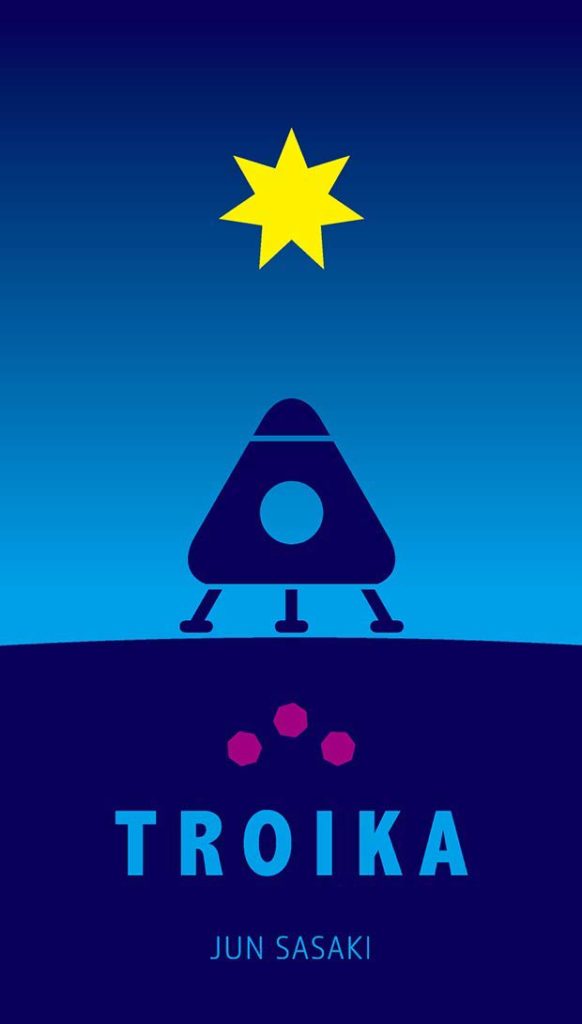

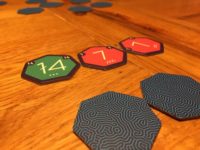
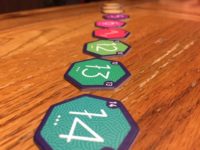
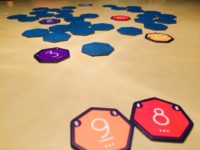
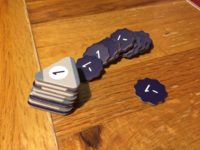
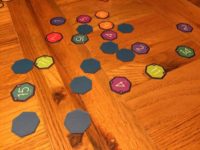


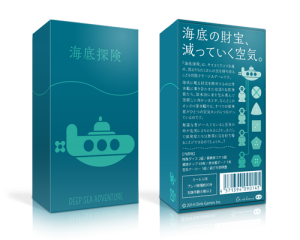
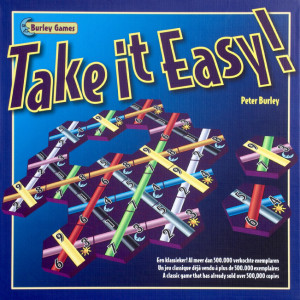
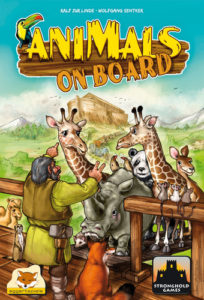
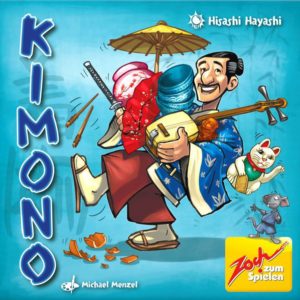
Sam says
Oink, the publisher of Troika, specialise in small games presented in small but graphically-attractive packages. Insider, A Fake Artist Goes to New York, Pyramid's Deadline and GNG favourite Deep Sea Adventure are all from Oink and I've yet to encounter a dud. Like Deep Sea Adventure, in Troika players must share the spoils and there's a familiar element of luck-pushing (also familiar: cries of Nooooooo when tiles are taken). The space theme isn't really there, no, but the sense of play is present and correct.